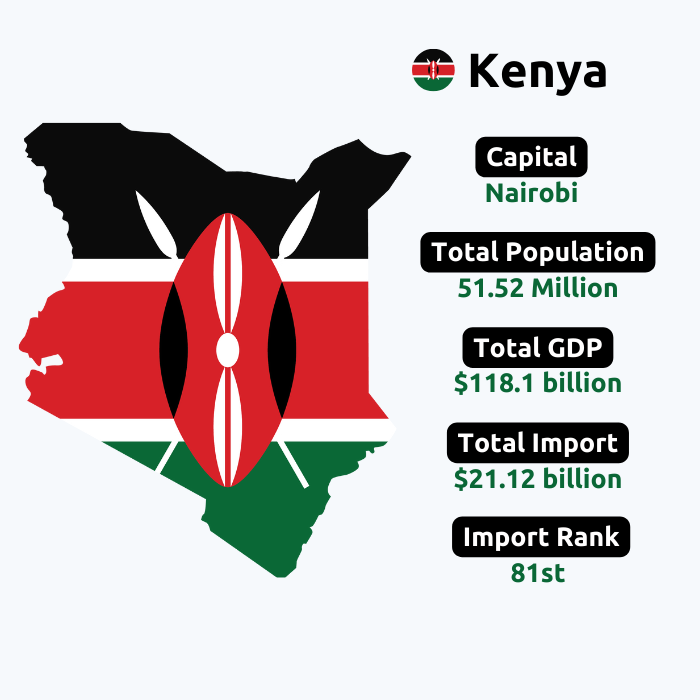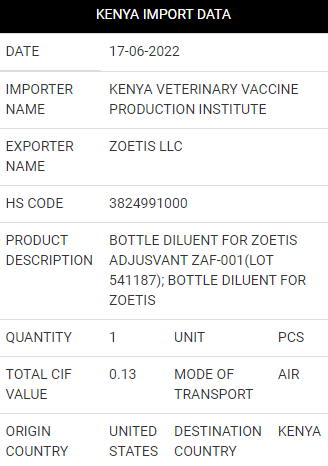Sample Data
Understanding Kenya's Import Data
We obtain trustworthy data from organizations, shipping businesses, and customs ports. This Trade Data
contains a wide range of fields, such as HS codes, product descriptions, prices, quantities, origin country,
destination country, and port names together with currency values. For traders and marketers, this trade data is
crucial information that helps them to make informed decisions. From the HS codes and product descriptions to
the quantity and cost of each product, everything can be obtained through this trade data.
We have included a sample of this trade data for your convenience and greater understanding so
that you can see what the trade data looks like as a whole, with complete details.
Kenya's import data provides valuable information on the country's total imports, import partners, import values, and imported products. It is collected by trustworthy sources such as the Kenya National Bureau of Statistics (KNBS) and the Kenya Revenue Authority (KRA). Let's explore the key insights and trends derived from Kenya's import data in 2023. The year 2023 witnessed remarkable growth in Kenya's total imports. According to the latest import data, the country recorded a significant increase in the value of imported goods. This surge can be attributed to various factors, including increased consumer demand, expanding industries, and the government's efforts to promote trade. According to Kenya's customs data, Kenya imported goods worth a total of $18.6 billion in 2023. We offer you really helpful and informative Kenya import data and shipment data information. All of the information in our database is derived from recently updated shipping bills, invoices, and other crucial transaction documents. We obtain trustworthy data from Kenyan customs ports, organizations, and other shipping firms. Kenyan custom import data includes a wide range of fields, such as HS codes, product descriptions, quantity and price, port names, and currency values.
So, as you can see for Kenya import-export data, we obtain trustworthy data from organizations, shipping businesses, and customs ports. The trade data contains a wide range of fields, such as HS codes, Kenya importers list, product descriptions, prices, quantities, origin country, importers/exporters names and addresses, destination country, and port names together with currency values. For traders and marketers, this trade data is crucial information that helps them make informed decisions. From the HS codes and product descriptions to the quantity and cost of each product, everything can be obtained through this trade data. We have included a sample of the trade data for your convenience and greater understanding so that you can see what the trade data looks like as a whole, with complete details.





